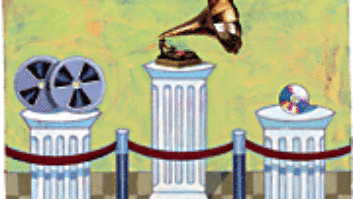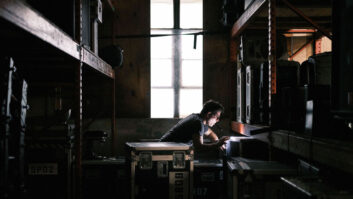MISUSING THE LEGAL SYSTEM HURTS US ALL
“The first thing we do, let’s kill all the lawyers.”
— Shakespeare, Henry VI
Actually, let’s not. The Shakespearean character who utters this line is preparing to throw the kingdom into chaos and sees getting rid of lawyers and other educated people as the first step toward that goal. I think we’ve got enough chaos in our business already.
Lawyers can be forces for good, of course, especially when they’re on your side. What makes lawyers go bad is when people hire them to misuse the law. And those people deserve, well, maybe not to be killed, but it would be nice if they could be put out of business.
One of the primary purposes of a legal system, at least in a free society, is to protect the weak against the strong. Every individual is entitled, so they say, to his or her day in court, and all individuals, so they say, are equal under the law. This means that bullies who beat up on smaller individuals are supposed to be punished, whether they are neighborhood thugs stealing kids’ lunch money or large corporations taking advantage of trusting customers, employees or shareholders. And the law also protects bullies from themselves, restraining them from their worst impulses so that their nefarious deeds don’t come back to bite them.
We all know it doesn’t always work out that way, and too often, justice is the sole property of those with the most resources: money. But sometimes, especially when legal issues are thoroughly examined by the system expressly set up to deal with those issues, the results can be very good indeed. They even allow us to get beyond our own limited vision and open ourselves up to the future.
A case in point is Sony Corporation of America et al. v. Universal City Studios Inc. et al., usually referred to as “The Betamax Case.” For you young ‘uns who may not remember this (or you oldsters who have forgotten), in 1976, Walt Disney and Universal Studios sued Sony Corporation over the fact that Sony’s newly developed home VCRs could record copyrighted television programs off the air and therefore, Sony, and anyone who used a VCR, was violating the studios’ copyright. The studios were positively apoplectic. Their side of the fight was led by a former politician-turned-movie industry lobbyist named Jack Valenti who proclaimed, “The VCR is to the American film producer and the American public as the Boston Strangler is to the woman home alone.”
After a couple of seesaw decisions in lower courts, the case was finally decided by the U.S. Supreme Court by a one-vote margin in favor of Sony. The court’s decision was based on the fact that individuals making recordings of television programs for their own consumption should be considered fair use under the copyright laws.
After that, of course, movie studios got into home video themselves — in a big way. In fact, it could be said that home video saved the movie industry: Today, something like 50 percent of the studios’ revenues comes from VHS and DVD sales and rentals. Nonetheless, like a dinosaur who refuses to accept his extinction, Valenti (who as I write this, has, at long last, announced his retirement) continues to argue that home video hurts the movie industry.
Ironically, Sony’s Betamax format lost out to the technically inferior VHS, but that had nothing to do with the court case. The important thing that emerged from the battle was the preservation of fair use as a crucial aspect of the principle of copyright. Fair use is supposed to promote the exchange of ideas, and the Betamax decision did exactly that: Without it, we would not only not have VHS, but we also wouldn’t have DVD, miniDV, iMovie or TiVO.
Like the courts, regulatory agencies are at their best when working to promote new technologies in a fair and firm way. The ’60s rock ‘n’ roll explosion might never have happened had not the FCC in 1964 changed the rules so that radio stations that had licenses for AM and FM transmitters were, all of a sudden, required to broadcast separate programs on each band. (Of course, the radio lobby fought this bitterly and managed to delay its implemention for three years — just in time for the release of Sgt. Pepper — and then in the early ’90s, hat-in-hand and bemoaning the decline of AM radio audiences, got the rules changed back.
Stereo television might not have happened — or would be in the same chaotic state as digital television is today — if the FCC didn’t mandate one system that every broadcaster implement. Anybody remember stereo AM radio? I didn’t think so. The FCC dropped the ball on that one, and bowing to pressure from the industry allowed four competing systems to coexist. No one could figure out which one to invest in and it soon sank without a trace.
But of late, regulatory agencies have gone into hiding (except when handing out largesse to corporate donors) while the most significant legal fights have taken place outside of the courtroom; for example, the Recording Industry Assocation of America vs. file sharing. Is this case wending its way through the courts like the Betamax case so that each side gets to rationally argue its position before impartial judges? Not exactly. The RIAA (of its five members, only one — Warner Bros. — is actually headquartered in the U.S.) has now sued close to 3,000 individuals for song-swapping, yet not one of those cases has made it to court or even mediation. So we don’t have any idea whether any of these people are actually breaking any laws.
Four hundred of the defendants have cried uncle in the face of the association’s legal muscle and forked over a reported average of $3,000 each (although some sources say that figure is way too low). Add it up and you probably get a sum somewhere close to the lawyers’ bills. One thing you can be sure of is that not a dime of this money has made its way to any recording artists.
Many defendants in these suits are college students and picking on them is a brilliant strategy. What parent, already facing tens of thousands of dollars in tuition costs, is going to want to spend more money fighting a giant organization with unlimited resources so that his kid can continue to download the latest releases by big-label artists who the parent can’t stand anyway? In the latest round of lawsuits, a couple dozen defendants have decided not to settle, so perhaps our judicial system, as creaky and flawed as it may be, will at least get a crack at sorting out the issue. Maybe.
To date, there has been only one significant court decision relating to this mess: A Federal District court ruled that when the RIAA (or any other copyright holder) engaged in fishing expeditions to sniff out suspected file sharers, it couldn’t force Internet Service Providers to divulge customers’ personal information. Score one against Big Brother.
By the way, one of the best articles I’ve read lately on the real meaning of media piracy appeared in the May issue of our sister publication, Millimeter. Check it out at millimeter.com/mag/video_piracy.
Meanwhile, as new technologies emerge, new ways for bullies to misuse the law at the creative community’s expense and its consumers are sprouting up right behind them. Sarah Benzuly wrote in the May 2004 issue (“On-the-Spot CD Releases”) about the people who are making concert recordings that the audience can take home that very night. All it takes is a rack of fast computers, a boatload of storage and a mobile CD-pressing plant. It’s a win-win situation for everyone: The recordings are far better than the typical Walkman-under-the-jacket bootlegs of the past, the audience gets a more meaningful souvenir than a T-shirt and the bands stand to make a pretty decent amount of money as there’s no record company or distribution chain to suck up the profits.
The three largest players in this field are Hyburn, DiscLive and Instant Live. Phoenix-based Hyburn has been around since 2001, when it produced the first on-site live disc for the Phunk Junkeez. DiscLive started in the spring of 2003, founded by two college students and two industry veterans. This past April, it was acquired by Dallas-based Immediatek, a small company developing new delivery systems such as Net-Burn, which aims to make it possible for artists to sell music on the Net without worrying about it being copied.
Instant Live’s story is slightly different, as it’s owned by Clear Channel Communications, the 600-pound gorilla of the entertainment industry. Clear Channel owns about 1,200 radio stations, roughly one-third of this country’s stations. (They would own a lot more by now had Congress not succumbed to a massive public outcry and overruled an FCC decision that would have raised the limits of ownership of broadcast stations even further.) Clear Channel also owns 130 concert venues in the U.S. and Europe and claims to have staged some 32,000 events in 2003.
Not surprisingly, the parent company’s reach has created some problems for others that are involved in the various areas in which it operates, and thus it is no stranger to the courtroom. In May, after being told by a federal judge that, yes, it would have to stand trial, Clear Channel settled an antitrust suit filed by a Denver concert promoter who accused them of refusing to play the music on their stations of any acts who performed at non-Clear Channel venues. Clear Channel, of course, “admitted no wrongdoing.”
The company is also making Instant Live’s rivals pay royalties if they want to get into any of Clear Channel’s concerts. “If they own the venue, then we can pay them a reasonable fee for that,” says Zach Bair, CEO and chairman of Immediatek. “It’s up to the band. If the band chooses them over us, so be it. I think the live disc industry is a big enough sandbox for all of us to play in.”
But it’s gone further than that: In April, Clear Channel bought the rights to a patent (number 6,614,729) that, as George Petersen mentioned in his July 2004 “Editor’s Note,” the company claims gives it the exclusive right to record any concerts and sell the CDs on-site anywhere. “We want to be artist-friendly,” Steve Simon, the director of Instant Live, told Rolling Stone, “but it is a business, and it’s not going to be, ‘We have the patent, now everybody can use it for free.’”
The patent — filed in September 2001 by two brothers, an electrical engineer and a lawyer — describes a generic system to record, edit and duplicate CDs using redundant systems. (You can view it athttp://patft.uspto.gov/netahtml/srchnum.htm; just type in the patent number.) It’s clever and looks like it should work, although the brothers apparently never built a working system. I have at least a half-dozen engineering students who could have come up with the idea and one of the requirements of a patent is that it be “non-obvious.” (For another look at the subject of bogus patents, see my “Insider Audio” column from June 2001.)
“We provided Clear Channel with a lot of documentation for older patents showing this technology has been out there since 1994,” says Bair. “The patent examiner must have been asleep.” Nonetheless, Clear Channel is using the patent as a bludgeon on its competitors. “Last year, they sent cease-and-desist letters to our president, Sami Valkonen,” says Bair. “We had no idea about the patent. They bought it at the same time it was made public.” But representatives at Hyburn and DiscLive say that the systems they use aren’t infringing on Clear Channel’s patent. “We don’t practice what their patent is claiming,” says Bair. “We use off-the-shelf software like Steinberg’s WaveLab, along with our own technology. How can you patent the way someone uses a retail product?” Furthermore, according to Bair, “From what I understand, the process they do at Instant Live is different from what’s in the patent.”
Clear Channel forges ahead, telling anyone who will listen that its patent makes the company the only game in town. “Band managers are continuing to be told that DiscLive will not be able to record and issue CDs on-site,” says Bair. The manager of The Pixies, one of the most popular artists to have worked with DiscLive, told Rolling Stone that they may switch to Instant Live. “It may be best to feed the dragon rather than draw swords,” he said. “Still, I’m not fond of doing business with my arm twisted behind my back.”
Besides being a businessman, Bair is also a musician. “As an artist,” he says, “I look at this and it makes me angry. I would find it hard to pay Clear Channel to record my own band. Sooner or later, there will be a big artist backlash against them from artists with a lot of money.
“On the other hand, the business side of me says I’d rather come to an agreement with these guys than fight it out in a courtroom. But if I’m pushed to the wall, I’m not going to throw in the towel.”
Let’s hope not. As many of us learned in high school, sometimes a well-aimed towel is the best way to fight off a bully.
Paul Lehrman isn’t a lawyer, but he knows a lot of them. So be warned.






